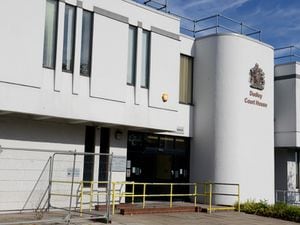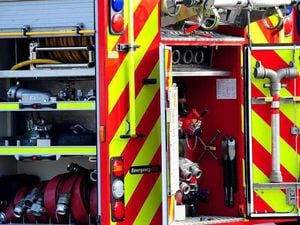Efforts to help discharge patients and cut ambulance delays at Dudley hospital
Efforts are under way to tackle bed-blocking at a hospital and ensure people who can be are discharged to cut delays – and free up ambulances.

Hospital chiefs have revealed Russells Hall Hospital's emergency department has returned to pre-Covid levels of ambulance and inpatient numbers.
And at various times the Dudley site has had 100 – up to 150 at its peak – beds containing people who are Medically Optimised for Discharge (MOFD).
The term refers to the point at which care and assessment can be safely continued in a non-acute setting, such as in a care home or in the patient's home.
Diane Wake, chief executive at the Dudley Group NHS Foundation Trust, said work is underway with partners to help get more beds at the site freed up.
But she told a board meeting on Thursday the issue was impacting how quickly they can unload ambulances, although patients were still being managed safely.
She said the hospital always tries to admit as quickly as possible, but patients can sometimes be waiting a long amount a time – and the trust needed "better pathways to enable sooner discharge".
"(The 150 figure) is a third of our general and acute bed base. We've got 450 beds and at its peak it hit 150 beds blocked, so it does cause some day-to-day pressures," Ms Wake said.
The chief executive said there had been some under-funding to social care but constructive work is underway to find a solution to the issue, due to people needing the right support to leave hospital.
Significant work is under way with social and primary care organisations with a focus on D2A – Discharge to Assess – where people can be transferred to beds in care homes which are managed by a team of health experts, or through a "Home First" approach by providing patients with support at home.
In a report to board members, ambulance handover delays of 60 minutes or greater was called a "significant performance and quality challenge" for the trust.
There were 461 of the delays in March, 374 in April and 387 in May – although the figure for May is off-set against a six-and-a-half per cent increase in attendances.





